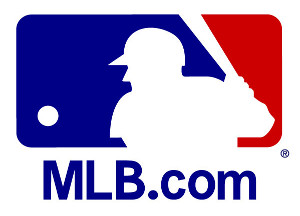
This article is designed to serve as an introduction to MLB betting. We’ll cover the types of wagers available throughout the regular season and playoffs, as well as tips for improving your odds of winning. Once you’ve finished reading, all you’ll need to do is locate a reliable online sportsbook (Bovada, for example) and try your luck.
-
Bonus: 50% up to $250.

- Best for USA.
- Fastest player cashouts.
- Sportsbook and casino.
How Major League Baseball Works
The MLB is made up of 29 professional teams in the United States and one in Canada. In addition, there are around 240 minor league clubs where prospects develop their talent before being called up to the “bigs.”
Teams are divided into the National League and American League. The former was founded in 1876, and the latter started in 1901. These two groups were originally in competition with one another throughout the season, but they’ve since merged to form a single professional baseball organization.
Each team plays a 162-game schedule during the regular season. At the end of that period, five teams from each league advance to the MLB playoffs. After four rounds of play, one team from each league remains to compete in the World Series. This annual competition between the AL and the NL pennant winners goes all the way back to 1903.
Understanding MLB Odds
While Major League Baseball is seen around the world, its primary fanbase exists in North America. For this reason, you’re most likely to find odds expressed in one of two ways.
- Moneyline Odds – The most common form of betting odds in American, the moneyline is expressed as a number with a plus (underdog) or minus (favorite) in front of it. Positive numbers indicate how much money you’ll win with a $100 wager. Negative numbers indicate how much money must be risked in order to win $100.
For example, if the Atlanta Braves are a +165 underdog, then you’ll win $165 on a $100 wager (in addition to getting your initial wager back). If the Braves were favored at -160, however, then you’d need to risk $160 in order to win $100.
- Fractional Odds – Most common in Ireland and throughout the United Kingdom, these odds are expressed in the form of a fraction. The easiest way to understand these odds is to remember the following: “amount won/amount wagered.”
For an underdog bet of 4/1, for example, the bettor would win $4 on a $1 wager. If he bet $100, his winnings would be $400.
When a team is the favorite, fractional odds will look like this: 1/4. This means the bettor must wager $4 in order to win $1. If the player risked $400, he would stand to win $100.
Types of MLB Bets
If you’re thinking about betting on Major League Baseball, the following options are the ones you’ll encounter most often:
Betting on the Winner – Also known as the moneyline bet, this wager pays out if the bettor correctly predicts the winner of a MLB contest. For an example, let’s say that the Rangers (+120) are playing the Yankees (-150). A $100 wager on the Rangers would return $120 (plus the original $100), while you would need to bet $150 on the Yankees in order to get $100.
Over/Under Betting – The sportsbook sets a number, usually between 7 and 12, and the bettor tries to predict if the final score of a game will be above or below this amount.
Run Line – If you’ve ever bet against the spread for the NFL, then you have a good idea of how this wager works. The favorite team is always expressed as -1.5, while the underdog is written as +1.5. In order to provide a payout, the favorite must win by 2 or more runs, while the underdog can either win outright or lose by a single run.
Prop Bets – These wagers can get pretty creative, as they allow bettors to speculate on all sorts of MLB events. One example is betting whether or not a run will be scored in the first inning of a game. Another is an over/under on the combined number of runs, hits, and errors during a game.
Future Bets – This wager allows the bettor to predict the outcome of some future event. In the world of Major League Baseball, the most common example is betting on the winner of the World Series. Sportsbooks usually post the odds before the start of the season, and some even keep them up as the season progresses (with the odds changing along the way).
Betting Strategies for MLB Games
This section provides a few useful tips to help increase your overall winning percentage. Try them all and then stick with the ones that work best for you.
- Lineup Cards – These cards are submitted about a half hour before the start of the game, and they list the players who are eligible to participate. In some cases, a team playing a day game may rest one of their stars if he played the night before. It doesn’t happen often, but noticing the absence of a superstar can allow you to capitalize on favorable odds at the last minute.
- Pitchers – A team’s pitching staff has a huge impact on the game, and the smart bettor is always familiar with these players. Modern pitchers rarely play an entire game, so expect to see relievers enter the game around the sixth inning. Since relief pitchers often finish out the game, knowing as much as possible about them can make a big difference when placing your bet.
- Slow and Steady – The MLB season runs from March through September, so the best strategy is to take a calm, measured approach to betting. If you start throwing out big money bets right out of the gate, a few unlucky wins could either destroy your bankroll or leave you with a bad case of burnout.
- Watch for Streaks – The concept of the streak is alive and well in the MLB, so always look for teams that are riding a winning streak or stuck in a slump. The earlier you catch on to a streak, the better chance you’ll have of capitalizing on it.
- Beware TV Games and Popular Teams – Bookmakers know that casual bettors are more likely to wager on televised games, and the same goes for perennial favorites like the Yankees and Red Sox. This leads to inflated betting lines, but you may be able to capitalize by wagering the other way.
